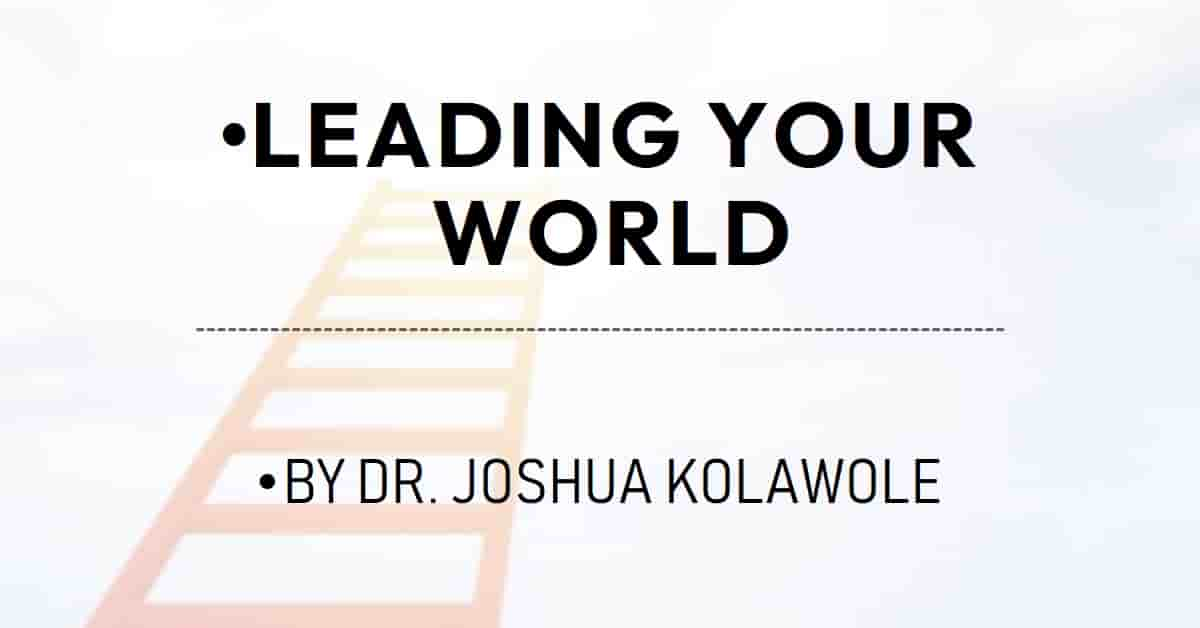
Leading Your World
In our journey through life, we encounter and resolve both technical and adaptive problems, often focusing heavily on technical expertise. However, effective leadership involves not only technical proficiency but also the crucial management of people and the environment, essential for guiding systems toward profitability. At the core of every system are humans, playing diverse roles as customers, employees, community members, advisers, coaches, and mentors, making human interaction pervasive.
Intelligence is recognized across four key stages:
Academic Intelligence: Pertaining to formal education and knowledge acquisition.
Emotional Intelligence: Involves understanding both one’s own emotions and those of others, fostering balanced and harmonious relationships.
Social Intelligence: Encompasses the ability to navigate interactions with multiple individuals and manage relationships within one’s social strata.
Adaptive Intelligence: Integration of academic, emotional, and social intelligence to address diverse challenges and situations, highlighting the importance of a holistic approach.
In a world populated by approximately 7.5 billion people, humans fall into three distinct categories

- The convenience-seeking people / Comfort-seeking people: These are the set of people who will never step out or launch out of their Comfort zone and they don’t typically lead to efficiency. They are socialized beings, who love tradition, manipulation etc. Everything about them is now, what they are eating, and seeing now. Also, they make good and excellent followers in the system and are about 70% of the people in the world but the problem is that a leader will have much to dissipate to this set of people in the long run, they are also easily spotted in the society as they are more about the present and are mostly dependent on the system. Of people in the world.
- Efficiency-driven people: These sets or categories of people are a bit more excellent and have discovered themselves as they are independent of the system and they are about 25%.
- The transformers: These sets of people are believed to have transformed minds that distinguish them from other categories of people and they are about 5 % to 10% of the people in the world—more eagle eyes in their analysis, system thinking, calm and more analytical in reasoning things.
The world needs leaders who Carry light, life and love to restore righteousness, peace and joy.
Features of our world are; darkness, disorder, desert, danger, damaged minds, diseased minds, and deaf minds.
Leaders are living in a difficult time in the sense that they live in a world where there is increasing expressions, emotions, entitlements, education, expectations and exposures.
There are seven (7) principles needed in leading the world; Identity, discipline, wisdom, orderliness, leadership, legacy and diligence.
- Identity: our identity is who we are. It is made up of the conscious mind (mental thinking), the subconscious mind (heart), the seat of emotional feelings and our will (acting). There are some building blocks for having a strong identity and they are wisdom, faith/belief, core values, passions, and leadership power/capacities. Our identity is the amount of health, peace, stability and harmony in our inner core without outward stuff.
- Discipline: discipline is one of the most important personality traits in everyone’s life and it means to instruct, correct, chastise or rebuke towards achieving a set goal. The roles of discipline in leadership are; focus, orderliness, organization, consistency, effectiveness, character, efficiency, punctuality, strength, maturity capacity, and transformation.
- Diligence: it means to strenuously give oneself to a cause or something. The strength of our diligence rests on our faith. Areas where we must be diligent in our:
- Virtue moral courage or strong
- Knowledge of the truth/principles about the goal
- Self-control
- Perseverance
- Honour
- Humility
4.Wisdom: it is the capacity to solve a problem with intelligence and with a full understanding of the complications of the solution pathway embraced. Dimensions of genuine wisdom may include moral virtue or excellence, prudence, discretion, sagacity, counsel, sound judgement, reverence, understanding, power and strength.
Note: There is a difference between being brilliant and being intelligent and having wisdom.
5. Order: it is the wise and intelligent arrangement or organization of the principles in our life. It is also the law of sequence that is based on every event, moment, person, instruction and word that is to be prioritized according to patterns and principles.
In achieving orderliness, we must have certain priorities that are by the dynamics of timing. To achieve orderliness we must have courage, light (knowledge, revelation and wisdom), power, strategic focus and effective planning.
6. Leadership: The higher we want to climb in life, the more we need leadership. We cannot lead without love as love and leadership are intertwined to one another. Some of the principles of love and leadership include; patience and perseverance, kindness and compassion, truthfulness, trust, forgiving, dedication, unselfishness, sacrifice, service, simplicity, complexity, solutions, soundness and sustainability.
7. Legacy: Legacy is crucial in improving outcomes, and building kingdoms, institutions, nations, and global and generational legacies and must be built with enduring values that scale it up to become large achievements. There are four (4) pillars of legacy:
- Pothos- compassions, emotions, heart
- Ethos- character, integrity, morality
- Logos – competence, intellect, intelligence
- Chronos – consistency, endurance
There are certain reasons why people don’t build a legacy and they may be because of pride, fear, rebellion, laziness, ignorance, complacency, failure to scale wrong choices, immorality, irresponsibility. ‘’He who would achieve little must sacrifice little, but he who would achieve much must sacrifice greatly’’. James Allen.
To sum it all up, Dr. Joshua Kolawole offers insights on effective leadership and personal transformation by emphasizing the importance of cultivating a growth mindset, taking responsibility for one’s actions and developing strong leadership qualities to bring about positive changes in our lives, communities and societies and also provide valuable guidance for those seeking to lead and create meaningful change in the world.
